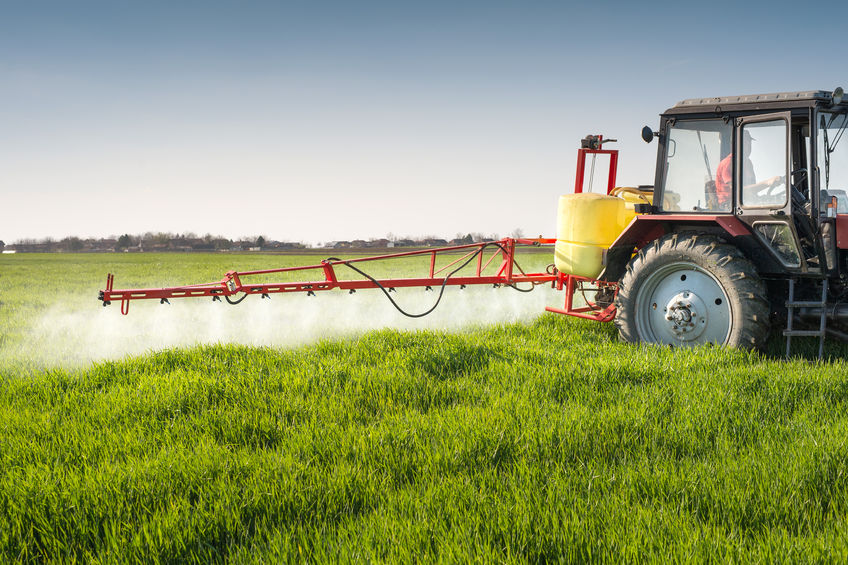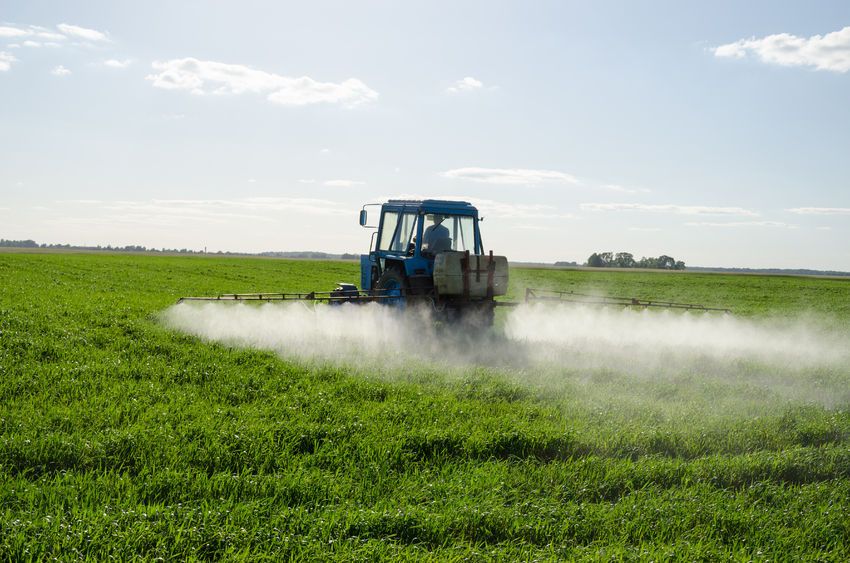
The Agriculture and Horticulture Development Board is running an experiment to farm without glyphosate for three years.
AHDB’s Newark Monitor Farm host farmer John Miller will manage a 10ha field without using any glyphosate, at Manor Farm in Nottinghamshire.
Monitor Farms bring together groups of like-minded farmers, who wish to develop or expand their enterprises, in an environment which encourages them to share critical performance information.
The family has farmed this tenanted land since 1939, and Mr Miller said of the try-out: “This is how my father would have farmed.”
Mr Miller has been over the field with a rake and roll shortly after harvest to deal with any volunteers and weeds. Previously the field was in winter wheat, with a couple of black-grass plants causing some concern.

The field will be treated with diquat later in the autumn to kill surface weeds, and then will either be ploughed or direct drilled in the spring with beans.
Following this year, the rotation will be winter wheat and then sugar beet.
The field is relatively easy to work, said Mr Miller, with sandy clayey loam over a clay subsoil, although it does have the potential to get waterlogged.
“I don’t think it’ll cost a lot more or less than our other fields – the costs are likely to be comparable. However, we might have to revise our thinking a bit,” Mr Miller added.
'A system less reliant on herbicides'
Harry Henderson, AHDB Cereals & Oilseeds Knowledge Exchange Manager for the East Midlands, said it is an 'interesting' experiment because farmers don't know if, when or how glyphosate could be lost.
“But as the industry moves towards less use of the plough we rely more heavily on glyphosate as the only alternative,” Mr Henderson said.
“It makes sense to look at ways around this potential issue from an early starting point. Monitor Farm attendees will help form a ‘farming without glyphosate’ plan for the next three years. Early thoughts are that the plough is far from redundant.
“Of course, the ultimate aim is to move to a system that’s less reliant on herbicides.”
Paul Gosling, AHDB Crop Protection Scientist, added: "It's important to bear in mind that diquat is just as at risk as glyphosate, if not more so. In addition, it does not kill black-grass, and can only be used once a year on stubbles."
John Miller is a third generation farmer at Manor Farm, Kelham, Newark on Trent. He farms 685ha on a mix of tenanted and owned land in the Trent valley.
John has just become chairman of the Nottinghamshire Farm Business Group and is keen to get a better grasp of soil management and investigate cover crops with the intention of reducing costs of production.
Increasing resistance to selective herbicides and a reduction in available chemistry mean the pressure to use glyphosate as a stale seedbed management tool is increasing.
AHDB is funding a five-year programme of field and container-based trials to help refine glyphosate management. The work will focus on preventing resistance to glyphosate developing in UK weed populations.
